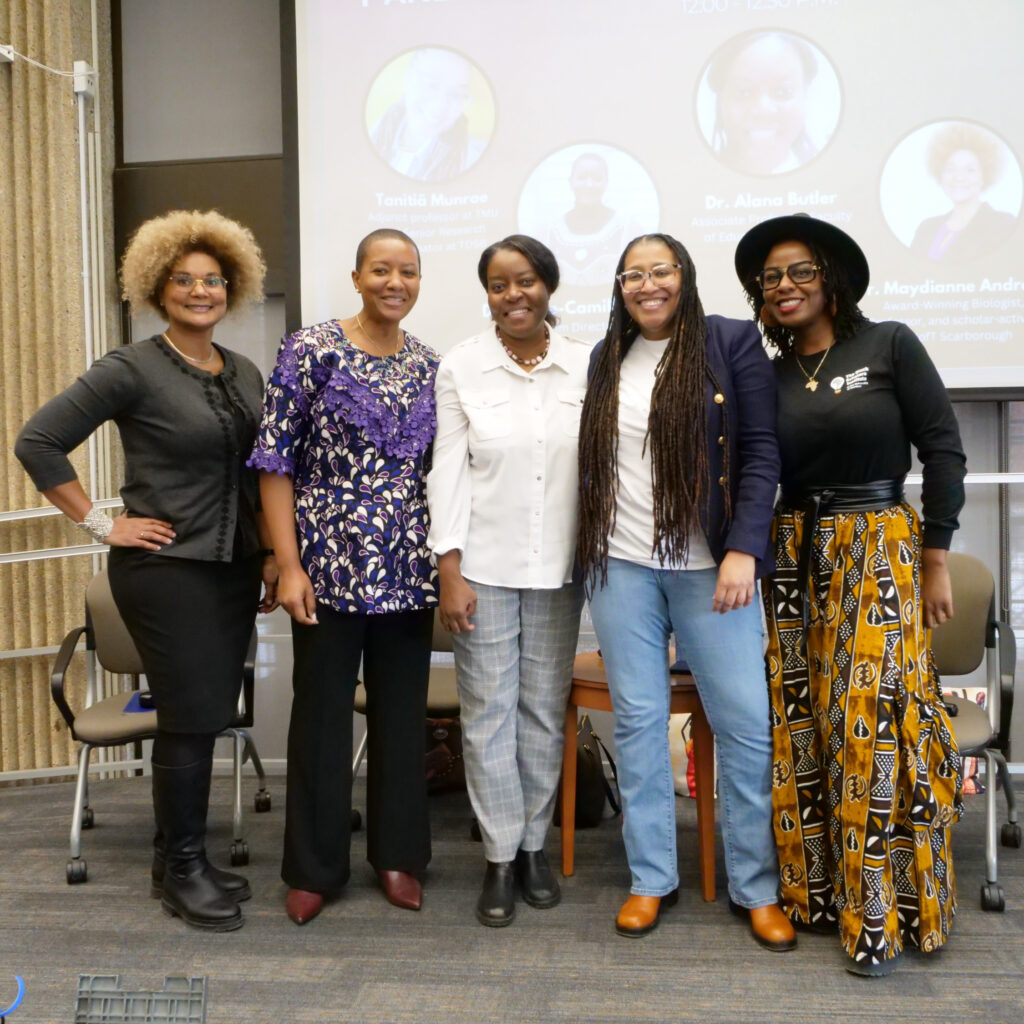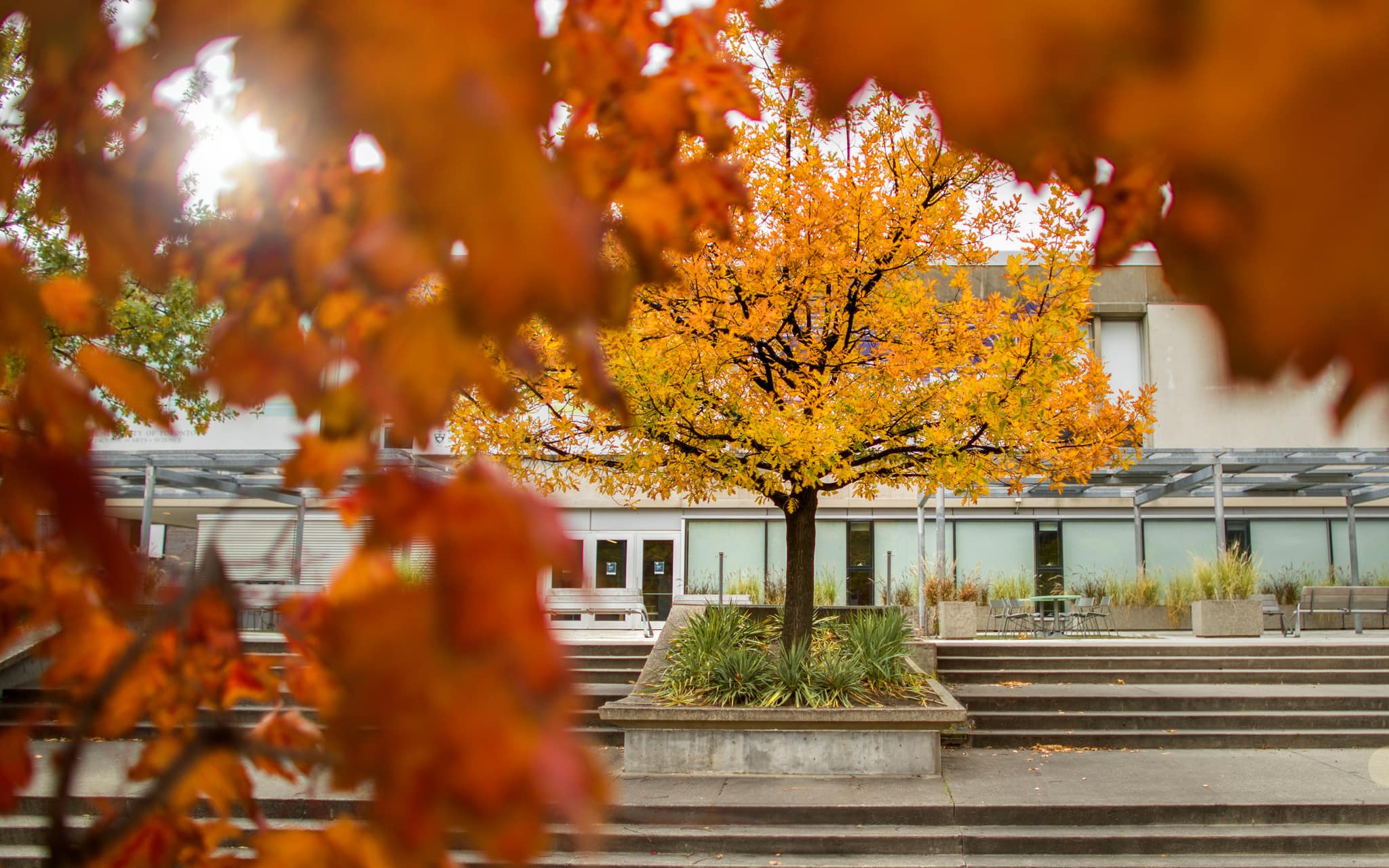Andrade, who serves as Special Advisor for Equity, Diversity, and Inclusion at OISE for the 2024-2025 academic year, moderated a panel entitled “Black Futures in Education.” The discussion explored the contributions of Black communities to education in Canada and the ways they have historically organized and advocated for equitable education. Her first question focused on what is essential to ensure Black students are flourishing in postsecondary education.
“Consider the importance of Black affirming spaces,” said panelist Dr. Alana Butler, OISE alumna and professor of education at Queen’s University. “The question was, ‘What do we do in terms of creating an environment where Black students can feel welcome?’ and I think that the first thing is [creating] an identity-affirming space, like we have here in this room. [We need to] create that in our own spaces.”
How Black students can flourish
Joining Butler was Tanitiã Munroe, OISE doctoral student and senior research coordinator for the Toronto District School Board (TDSB), Professor Grace-Camille Munroe from Toronto Metropolitan University, and Professor Camisha Sibblis from the University of Windsor. Together, they discussed how Black students can flourish, the importance of dismantling oppressive structures, and fostering environments where Black students can thrive holistically.
OISE Professors Ann Lopez and Robyn Maynard, U of T honorary degree recipient and alumna Rosemary Sadlier, and Karen Murray, TDSB’s System Superintendent for Equity also engaged in a rich conversation about the past and the future of education for Black youth.
Dr. Natasha Henry-Dixon, an professor of African Canadian History at York University, closed the day with a presentation about what Black communities have endured in education, including legal and de facto segregation, academic streaming, and more.
“It’s important for us to remember that Black History Month is intended to spur learning and community-building throughout the year, not just within 28 of the 29 days of the month,” she says. “So, it serves to inspire us to act and not just to celebrate. What are we doing come March 1? What are we doing in June and October?”
She ended her remarks with a powerful call to action: “I hope that my talk synthesized the importance of Black education in the past, got us to think critically about the direction that we need to go, and called upon us to work together in order to make that happen.”
By Perry King


